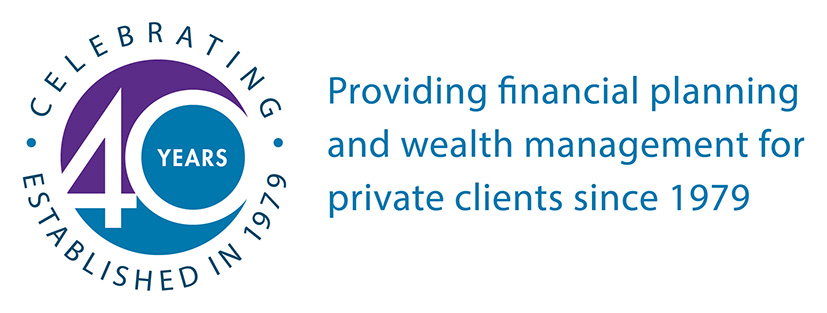
Helen Newport, Founder of Essential Wealth Management.
I returned from Switzerland after fourteen years away and needed a job. A tiny advertisement that said a company was looking for salespeople in Newbury caught my eye. I was born there in 1944 and I still had relatives living in the area.
My interview was with a brash and noisy person representing Hambro Life who told me that if I sold 2.5 policies per week, I could earn £15,000 per year (about £75,000 in today’s money). There was no pension, no office, no sick pay, no car, nothing, because I would be “self-employed”. It seemed to be a reasonable option until I found a proper job. Hambro Life, brainchild of Sir Mark Weinburg, Sir Sid Lipworth QC and Joel Joffe, who represented Mandela, was a relatively young company at just seven years old. Little did I realise the world into which I was entering.
I emerged from three weeks of training in Swindon to a gloomy branch down an alley in Newbury, only to find that the manager had been sacked. At one point there were just three of us. I was then, and for most of my time in the Newbury branch, the only woman in a climate of general misogyny, which wouldn’t happen these days.
I had very few contacts and was just getting used to the new decimal money. Not that I had much as I didn’t receive any money for over six months. It was 1979, the year that Maggie Thatcher came to power, just after The Winter of Discontent. 1979 started a 25-year period of extreme volatility in official rates with the Bank rate peaking at 17% in November 1979 as Maggie attempted to fight inflation. The Bank of England didn’t assume responsibility for setting official rates until 1997. There was a recession from 1980 with unemployment rising further and the manufacturing sector receding with closure of factories, shipyards and coal pits because imports were cheaper. By 1982 unemployment stood at three million or 12.5% of the workforce. In hindsight, the economic climate was not the best in which to start a business.
Maggie was the instigator of “deregulation” which actually led to the most regulation that had ever existed. The Insurance Companies Acts 1981 and 1982 allowed the Secretary of State to spawn further regulation which led to the situation that prevails today of a very heavily regulated life insurance sector. I remember Syd Lipworth asking us why we hadn’t taken advantage of the new unit trusts that we could now sell and even he was astonished to hear that we had been told we could not mention it to our clients. All of this turmoil meant that carrying out such a difficult job was made worse by the hammer-like constrictions put upon us. Before this, the financial sector was regulated by private institutions and professional codes. The Life Insurance Association (LIA) and The Institute of Financial Planning were two of these.
Mobile phones were not introduced widely until mid-1980 and SMS in 1992. “Portable” computers arrived in the mid 80s, weighing many pounds, office based computers were huge and expensive and printers were enormous and noisy requiring massive “hush boxes”. They were laughably primitive. But I bought two in the mid 80s at vast cost – about £5,000 each in old money. The problem was finding staff that could operate them. I also had a brick of a mobile phone as soon as they came onto the market.
The idea of seeing clients in-house was unheard of and I was expected to find clients and visit them in their homes to explain the need for insurance and pensions. Investments were limited to endowments. I travelled all over the South of England with very little success for the first six months until I remembered what I had needed in my previous business – all round peace of mind – outsourced. I formulated this idea for my business and for my clients, I planned to be a one- stop-shop for much more than buying a policy.
It was a lonely environment but in my second year, my new plan was beginning to work and, to the amazement of my few colleagues, I hired a part time secretary and commandeered a corner of the branch as an office. In the absence of mobiles and computers, I had to use rate books and public phones. Working out the cost of life insurance based on gender, age, amount and so forth was all calculated from the rate book, usually sitting on a sofa late in the evening. For working out rates of inflation and deflation I used a handheld Texas Instruments TI-35. I usually put in a full day in the office and went out at night to see clients. This was not without its dangers and twice I was attacked or threatened. This caused the company to put me on the BBC to talk about their new safety regime. It was around the time of Suzy Lamplugh in 1986, the estate agent who disappeared while showing a house to a “Mr Kipper”. She was never found.
My life in the early days was a stressful round of long days and nights and many setbacks. However, I was encouraged that Maggie, older than me, managed on five hours sleep and a glass of whiskey. If she could do it, so could I. In 1985, I became pregnant and so had a new challenge. I moved house to be nearer the branch and hired a nanny. I was nursing my baby while the removal men brought in the boxes. As soon as I knew I was pregnant, I made a decision not to visit clients in the evenings. It was a turning point. In 1986, the year my daughter was born, I had one of my best years. The difficulty was hiding my pregnancy from my clients who, perhaps, like my PA, would think I couldn’t be a mother and look after them. My PA of four years left nearly as quickly as my partner, with two weeks’ notice.
I had a few good breaks. I had rescued a top QC who broke his leg in the mountains, and he became my first big client. Back in the early 80s he paid a five-figure sum into the private pension I had set up for him and saved tax at 60%. It amazed me that no one had pointed this out before but then realised that however good people were at their jobs, they paid little attention to their own finances. It amazed my client too and he put me in touch with many of his colleagues.
Another good break was being the only woman in the south who was making any success in this field and so I was noticed and invited to give talks in such places as Montreux, Seychelles and Belfast during the troubles. I was invited to speak on the LIA main platform, and I was introduced to the Million Dollar Round Table, USA, which I attended each year for about five years. It was here that I found out about much more advanced methods of doing this kind of business.
Of course, my innovations were not always gladly received by the company which remained stolidly sales-based for years and they particularly didn’t like the idea of fee charging for services that did not involve selling. I got around the problem by setting up a separate company (now amalgamated). They little realised that by taking on the often-mundane aspects of personal finance, and once trust was gained, my clients not only became friends but clients for life.
My key words are continuity, investment, curiosity, calculated risk and a belief that almost everything is possible. I continually reinvested any profits I made into the business which included technology and a big budget for staff training. I joined groups of businesswomen, became a director of the Institute of Financial Planning in its year of inception, and continually tried to widen my horizons.
Now, after five years of retirement, I am still invited to clients’ events and the three key client-facing people at Essential Wealth today were all recruited and trained by me on my Graduate Training Programme. I know that the clients I worked with, sometimes for over thirty years, are still clients of the firm or their children are. It feels humbling to think of all the lives I have had the privilege to touch.



